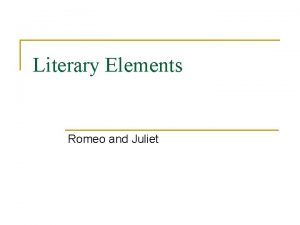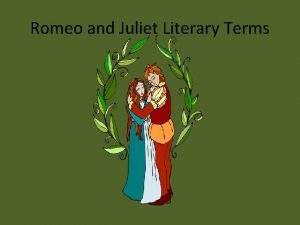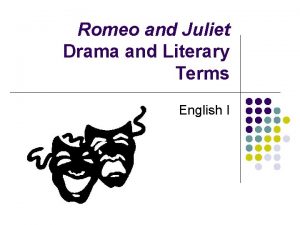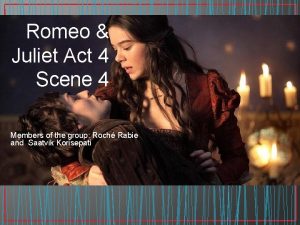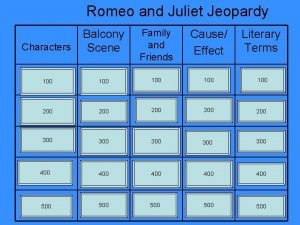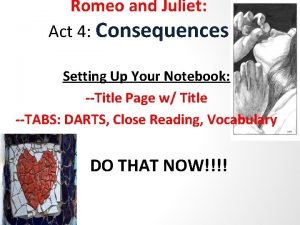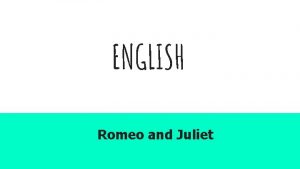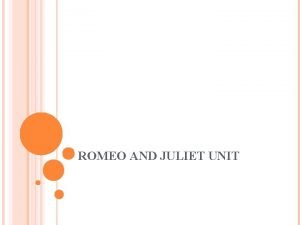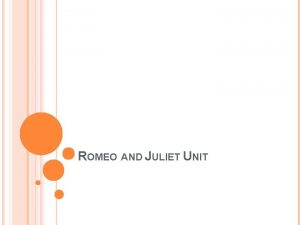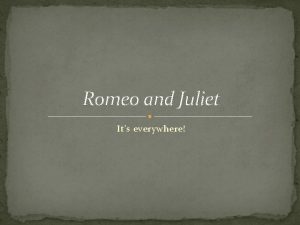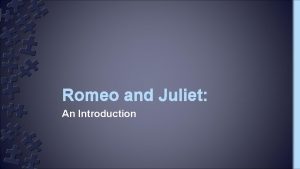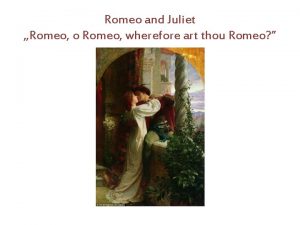Romeo and Juliet Act I Literary Terms An








- Slides: 8

Romeo and Juliet { Act I Literary Terms

An aside is dramatic speech that is not meant to be heard by all of the other characters in the play. aside An aside can be a character speaking to him/herself An aside can also be one character speaking only to one other character, but not the entire group Sometimes an aside can even be the character talking to the audience

Poetic verse that has a clear rhythm (usually iambic pentameter) but no clear rhyme scheme. blank verse

A foil is a character that contrasts another character (usually the protagonist) as a means of highlighting particular qualities. foil A foil can have characters that are similar or different to the character he/she is contrasting. Who is Romeo’s foil?

A pun is a play on words. pun Ex: act I, scene 1 opening

mono – one logue – speech/discourse A monologue is when one character speaks for an extended period of time on stage. This speech is meant to be heard by the other characters in the play. monologue

A soliloquy is when one character speaks alone on stage for an extended period of time. A soliloquy is generally meant to serve as a character’s internal monologue. In other words, it is a character thinking aloud to him or herself. soliloquy

Language that relies upon “figures of speech” to create effect Metaphor – compares w/out using “like” or “as” Simile – compares with using “like” or “as” Hyperbole – over exaggeration for effect Onomatopoeia – words that sound like what they are Personification – giving non-human entities human qualities Figurative Language
 Romeo and juliet figure of speech
Romeo and juliet figure of speech Alliteration examples in romeo and juliet
Alliteration examples in romeo and juliet Protagonist in romeo and juliet
Protagonist in romeo and juliet Long uninterrupted speech
Long uninterrupted speech Romeo romeo where art thou romeo script
Romeo romeo where art thou romeo script Act 4 scene 4 romeo and juliet
Act 4 scene 4 romeo and juliet Romeo and juliet act 2 jeopardy
Romeo and juliet act 2 jeopardy Summary of act 4 and 5 romeo and juliet
Summary of act 4 and 5 romeo and juliet Romeo and juliet act 1 scene 5 quotes
Romeo and juliet act 1 scene 5 quotes

